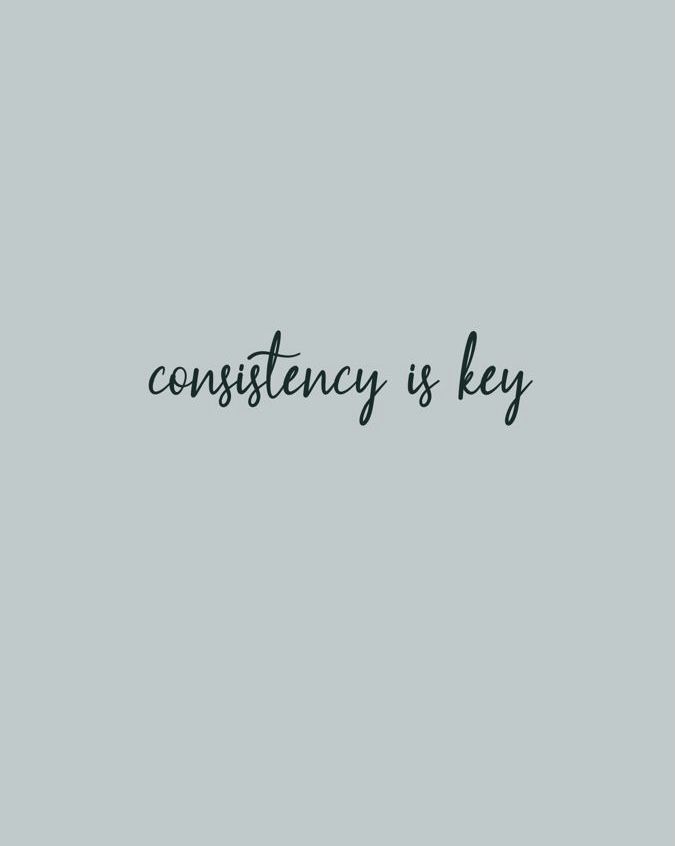A Practical Guide to Consistency in Tech and Life. Even When You don't Feel Like it.
 Debdeep Sanyal
Debdeep Sanyal
Why bother at all?
We've all heard some motivational speaker on YouTube talking about how consistency is the most reliable key to getting good at something, but why so? Is it all hype? Is there some element of truth to it? Turns out, there in fact is a lot of truth to it and more so than what the internet tells us. Biologically, Research has proven that if you continue doing a task regularly, the brain starts to make an effort to assimilate the new signal, leading to the formation of neural connections which can record the signal and anticipate it.
Try taking this example, let's say you practise catching a ball every day. On the first day, you'll be missing a ton of catches, you'll have a hard time predicting the trajectory of the ball, how to align your body to catch it, how much to move, if you should make a dive, there's a lot of new information for the brain to process. This makes the brain uncomfortable, which leads to stress. This is the stress we have all confronted, this is the stress which doesn't allow us to be consistent. However, if you somehow beat this initial friction and keep practising catching the ball every day, your brain starts registering the information and over time, you no longer have to think about the position of the ball in the air and if you should move to the left or how should you position your hands to catch the ball, all of this seems like second nature to you, since every part of your brain and body already knows what to do, and how to do it.
Well, some of us might be considering if being consistent and going through the entire process is worth it, but most are struggling with a different question hanging in our minds. Yes, we know consistency is a valuable skill to have and the Internet Gurus have made sure that the idea of being consistent is the only way to success has been nailed to our brains, but how do you get consistent in the first place? How to start with it, and more importantly, how not to get sidetracked?
Getting started
Can you guess what's the most vital action you can take if you are planning on being consistent at a piece of work? You would be right if you said getting started! Yes, it does sound simple enough, but step 0 is the step where most people back away. It all takes place in the brain. The brain loves inertia, if it prefers staying in its comfort zone, it will tend to prefer so for new opportunities, just like how it thrives in being uncomfortable if it's trained to be so. Now you might be thinking, wait. Is the latter part true? Are there people just born with the capability of thriving in uncomfortable scenarios and jumping head-on? Well, No. The brain by default, prefers being comfortable and will prefer so as long you train to be otherwise. When we want to start something new which we aren't used to, we will be interrogating ourselves. Is it really worth it? Will it be that beneficial? These are questions we've all asked ourselves, and let's not lie, sometimes these questions just win over us. This is a check we need to make because if you show up, you can make sure you get to the end without any compromises. How do you get started? To put it very simply, the most effective way is to not think much, and just take the first step. Assume that at the end of the task, you are going to be successful, which you will be, and don't give yourself the time to get clouded with dilemmas. Give a go at it without thinking much, since it's better to fail trying, you won't at least repent that you didn't give it a shot.
I started, but I feel like giving up
You've taken the first step and you are in the flow of the task. Now what? Is everything going to be easy since we have overcome our primary hurdle? Well, this is actually where the difficult part starts. Have you ever started reading a book but never somehow finished it? Or maybe you enrolled yourself in a course but never reached the end. At some point in our lives, all of us have faced it. Why does this happen? Why do we plan something but never get to finish it? It's due to the same reason mentioned in the first section, the brain just doesn't like new stuff! The initial few days are the toughest, that's where most people give up, and it's because you are asking your brain to adjust itself to an environment it's not good at. We all love to be good at everything, and in the yearning to get better at what we already are good at, we often ignore getting better in areas we need to improve. Maybe you have just started coding, or maybe you are in high school and you have started with Calculus, and you've been practising it for 15 days now but you don't seem to notice any improvement, you still need to look at the solutions or ask someone else for it. You'll also be looking at other people who are solving problems like it's a breeze. With all of this stuff, we just decide that we aren't of any good in this field and that it's just not meant for us. This marks the second step where we need to check ourselves. Just convince yourself that you won't be good when you start, and you won't notice any changes till one day, you suddenly feel like maybe it's not that hard. You just need to get to that one day. What I've found useful in my journey, is to set a mark for 90 days. Just, 90 days. Start off expecting that you won't be making any progress till day 90, but day 91 will be an entirely different day. It's not quite how it works, but you won't be lying to yourself when you tell yourself that day 91 is going to be different. In the span of 90 days, you'll feel like giving up at least a 100 times. You'll feel like what's the harm in taking a day off? Or maybe you were out with your friends and you returned home bone tired. How do you get yourself up in such times? The simple answer is to just take a moment to think how you would want to feel about yourself at the end of the day before going to bed. Yes maybe you are tired, maybe you feel like taking a day off, but just think about how you will feel when you get the task done even when you weren't willing to. That gives rise to confidence. Confidence eases the path of Consistency.
I have been consistent for a long while, but I missed a day
This is another scenario that is often confronted on the path to consistency and often results in a hurdle. Maybe we have been very strict with ourselves throughout the process but there are days when we aren't left to our choices and things don't turn out in our favour. One of the factors which keeps people consistent is the fear of not being consistent, and actually, the negative force is indeed a good driving force in this case. What happens if you do miss a day, maybe when you're 80 days in the mark of 90 days? Is it all worthless? Do you need to start from day 1? No. Consistency doesn't mean that you have to practise 10 hours every single day, because that's just not practical. Maybe you'll be getting 10 hours of work done in a day, on some days maybe you'll get 12 hours of work done but also, on some days you'll just get done with 2 hours of work off the table. What's important is the progress you make and not the duration of it. Yes you'll be feeling like crap and Yes your heart will sink if the consistency streak is disrupted, but it's better to keep going anyway.
Does Consistency Guarantee Success?
You've been consistent and you've passed the preliminary stages of doubt and procrastination. Well, success should be guaranteed now right? That's what the Internet motivators have taught us, but that's not how the world works. You might be consistent all the way, but the results might just not be in your favour. It happens all the time, like it or not, the results won't just be in our favour at times, no matter the work that went into the process. Does it mean that being consistent was worth nothing?
Not really, consistency is more than the results. Results will never be guaranteed, but being consistent boosts your self-confidence and that sticks with you throughout. Consistency builds the discipline that will help you be your best in every sphere of life which isn't just confined to a single work you get done. Even if you don't achieve the goal you had set out for, the next time that you are about to embark on such a journey again, you'll start with the confidence that you have the experience of getting things done and not negotiating with yourself in the middle of the process, and that's the most important thing to take away.
A few tips to keep track of yourself
While results might come and go, being consistent is an achievement in itself. You'll have a million excuses to take that Sunday off but it's the one excuse to stick to the process that really keeps you going. One of the better ways to ensure that you stay consistent throughout is to stay accountable to someone. Maybe it's your mother maybe your best friend or maybe your professor, whoever it might be, once you stay accountable to someone, the work becomes more than personal. Deviating from the track will lead to a loss in your credibility and none of us like that. An even better way to stay accountable to someone is sharing your work on the go over the internet. This means that you're going to be accountable to your entire following, and also you're putting out proof of your work. Leaving a digital footprint of your work helps people be aware of what you're getting done.
I hope you take away some tips from this blog and the next time you set your mind to something, you get it done, no matter the odds.
You can tag me on Twitter when you start with your journey and I would love to be a part of it!
Subscribe to my newsletter
Read articles from Debdeep Sanyal directly inside your inbox. Subscribe to the newsletter, and don't miss out.
Written by

Debdeep Sanyal
Debdeep Sanyal
Machine Learning and Tech enthusiast, learning on the go, putting the knowledge out on the go.